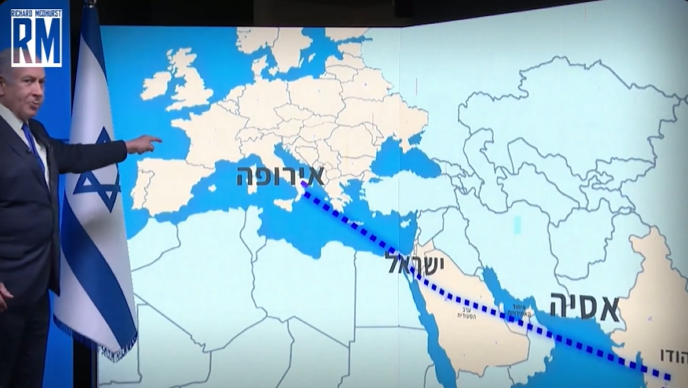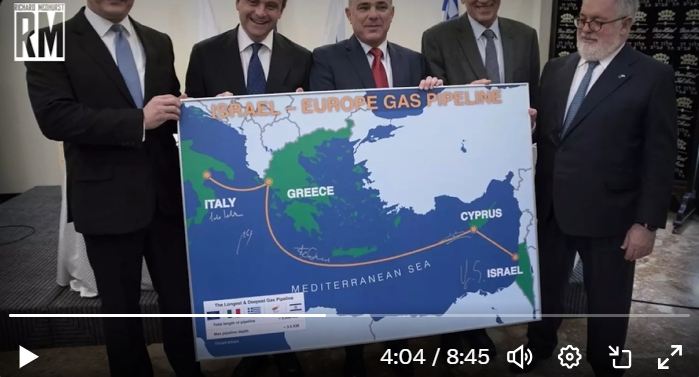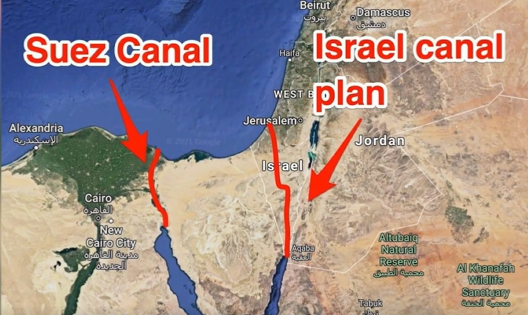Part 1: NATO failed in Ukraine against Russia. Now it's targeting China (Youtube/Invidious)
Part 2: Anti-China hawks' drive to expand NATO into Asia may destroy Western military alliance (Youtube/Invidious)
Personally I found some of Escobar's comments in part 2, around @8:03 regarding DPRK to be pretty interesting. He talks about how although the Western media focuses on the military aspect of relations between Russia and DPRK, that recently, signs are showing of Russia's intention to help with getting DPRK re-integrated into international trade and especially his comments in regard to building a trans-Korean railway to link with the trans-Siberian railway and how this topic is likely to come up on the next Eastern Economic forum in September. (This railway concept isn't a new one, but I found his comments about recent events interesting) as well as potential inclusion in other trade deals/organizations, etc.
click to see a transcript of his comment on this
[Note: transcript is auto-generated and I didn't clean it up completely]
Escobar: I'd like to focus on something that happened these past few days, which is enormous, and I would say for most of the planet, quite unforeseen: which is Russia bringing back North Korea, the DPRK, to the rank of a very important Global south power with enormous reach...
So, we have Ministry of Defense Sergei shoigu, received like Mick Jagger in Pyongyang. he got a true rock star welcome. the whole thing, including a private audience with Kim Jong-un. and obviously the whole leadership of the dprk.
What leaked, of course, was the possibility of many military agreements and increasing their military collaboration what did not leak is the best part of them all because it's the geo-economic part.
What do the Russians really want to do with the Pyongyang? they want to integrate Pyongyang with South Korea, with Seoul, and of course this will mean Russia developing a sort of go-between diplomacy between both--and they have the possibility to do both because they are also respected in Seoul.
And something that has already been discussed at the Eastern economic Forum in Vladivostok--these discussions they started at least three or four years ago in Vladivostok--and what they're all about, basically, is to build a trans-Korean Railway which is going to connect with the Trans-Siberian and connect both koreas to the Russian Far East and then all the way across Eurasia.
So, imagine that you are a Samsung businessman in Seoul you look at that and said "wow, I'm gonna have--I don't need to to use a cargo tankers anymore, I can have direct access to the enormous developing Market in the Russian Far East, not to mention the whole of Eurasia via Russia just by building a Railway." very very simple.
Which, sooner or later, with--and I would say, with Chinese input, could become a high speed rail. Considering that the Chinese are already investing in a High-Speed Rail in Russia, and considering that if there is a a duplication of the Trans-Siberian into a Trans-Siberian high-speed rail is going to be built by the Chinese, this is a trans Korean Railway could also be built with Chinese input, technical input as well. And financed via a Chinese a Silk Road fund the brics Development Bank, Russian Banks--and it could be a a reorganization of Finance, East Eurasia style.
So, they were discussing that of course. and this is going to be rediscussed and they're going to get deeper into it at the next Eastern economic Forum in Vladivostok in early September. so, it's a around the corner. literally. so so the fact that this is happening now, it's very, very important because this is a sort of uh, preamble to what they're gonna get into at the next Eastern economic Forum.
So, everybody is happy with this Arrangement; North Korea because they are brought back to the Forefront of trade in the parts of, Eurasia, the possibility of having some sort of geo-economic deal between North Korea and South Korea, Russia developing the Far East and integrating the Far East with the koreas, and China, of course, because this also integrates this part of Eurasia this North in Eurasia uh, framework. and it's part of brics. it's part of the Shanghai Corporation organization.
And this opens, I would say, this leaves us with the possibility of North Korea, sooner or later, getting integrated into the Eurasia economic Union. and that's fantastic. because this I see that happening in uh at least two stages. the first stage, the EAEU strikes a free trade agreement with North Korea, just like the ones they have with Cuba, or with Vietnam in Southeast Asia. and they are also working with Indonesia, to have an EAEU free trade deal with Indonesia.
They could also do the same thing with North Korea and--fantastic--this bypasses U.S sanctions! because it's going to be EAEU basically, uh Russia is 80% of the Firepower of the EAEU. they can devise a settlement mechanism involving in North Korea that bypasses the US dollar completely. you have expansion of EaEu to North East Asia which is very important.
The Chinese are going to love it as well because they can also, um, even if they are not part of the EAEU, don't forget that Putin and Xi have already said,and the directives are already there, the Belt and Road initiative--BRI--and EAEU they have to converge. and this would be a perfect example of convergence between BRI and EAEU. so that's why the way I see this visit by shoigu as Mick Jagger, it's extrapolates it everywhere, geoconomically and geopolitically, and it's no wonder that it was not even mentioned, I would say, or barely mentioned in Western mainstream media.
Anyway, just sharing these. They cover a lot of topics in this discussion.



Man I hate this dude
-- Antony J. Blinken, "Lebanon and the Facts", 1982
-- Antony J. Blinken, "Israel's Saving Grace", 1982
-- Antony J. Blinken, "The Danger Within", 1983